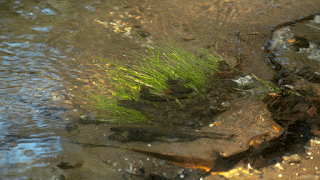ORGANIZATION OF THE STATE
Spain is a democratic state/España es un estado democrático
Spain is a democracy because all citizens are equal and have the same rights and obligations. People can freely elect their rulers in elections.
SPANISH: España es una democracia debido a que todos los ciudadanos son iguales y tienen los mismos derechos y obligaciones. Las personas en España pueden elegir a sus gobernantes en las elecciones.
These rights and obligations are written in the Spanish Constitution. The Constitution is the most important law in Spain. The present Constitution was written and approved in 1978.
SPANISH: Estos derechos y obligaciones están escritos en la Constitución Española. La Constitución es la ley más importante de España. La actual Constitución fue escrita y aprobada en 1978.
The Constitution lists:
- The rights and duties of citizens. For example, the right to freely express ideas and the duty to follow the laws. SPANISH: Los derechos y deberes de los ciudadanos. Por ejemplo. El derecho a expresar pensamientos e ideas libremente y el deber de cumplir las leyes.
- The institutions of the State. The major Spanish institutions are the Head of State, the Parliament, the Government and the Courts. SPANISH: Las instituciones del Estado. Las principales son el Jefe de Estado, el Parlamento, el Gobierno y las Cortes.
Spanish institutions/Instituciones españolas
The Head of State /El Jefe de Estado.
The Head of State is the King. The title of King is inherited fron parent to child. In June 2014, Felipe VI became the King of Spain.
SPANISH: El Jefe de Estado es el Rey. El título de Rey es heredado de padres a hijos. Desde junio de 2014, Felipe VI es el Rey de España
 |
| Caricatura de Felipe VI |
The King does not rule, but he complies wit the decisions of the Parliament. The main function of the monarch is to represent Spain.
SPANISH: El Rey nos gobierna, pero apoya las decisiones del Parlamento. Las principales funciones del moncarca es representar a España
The Parliament/El Parlamento, Las Cortes Generales
The Parliament develops and approves laws. They also control the actions of the Government and approve the budget, which is the plan for how to spend money.
SPANISH: El Parlamento desarrolla y aprueba las leyes. También controlan las acciones del gobierno y aprueban los presupuestos, es decir, en qué gastar el dinero.
 |
| Congreso y Senado |
The Parliament consist of the Congress and Senate.
SPANISH: El Parlamento está compuesto por el Congreso y el Senado.
The Government/El Gobierno.
The Government directs the State according to the laws. It also deals with the relations between Spain and other countries.
SPANISH: El Gobierno dirige el Estado de acuerdo a las leyes. También se ocupa de las relaciones entre España y otros países.
The Government is made up of the President and the ministers.
SPANISH: El Gobierno está compuesto por el Presidente y los ministros.
The Courts of Justice/ Los Tribunales de Justicia.
The courts make sure that laws are respected. For this reason, judges and magistrates judge people who break the law.
SPANISH: Las tribunales se aseguran de que se respeten las leyes. Debido a esto, los jueces y los magistrados juzgan a las personas que no las cumplen.
There are different types of Courts of Justice. The most important one is the Supreme Court.
SPANISH: Hay diferentes tipos de Cortes de Justicia. La más importante es el Tribunal Supremo.
ESQUEMA (ESTUDIAR)
JUEGA
PARA SABER MÁS
LA CONSTITUCIÓN ESPAÑOLA PARA NIÑOS (CLICK EN LA IMAGEN)
DERECHOS Y DEBERES DEL CIUDADANO

























































